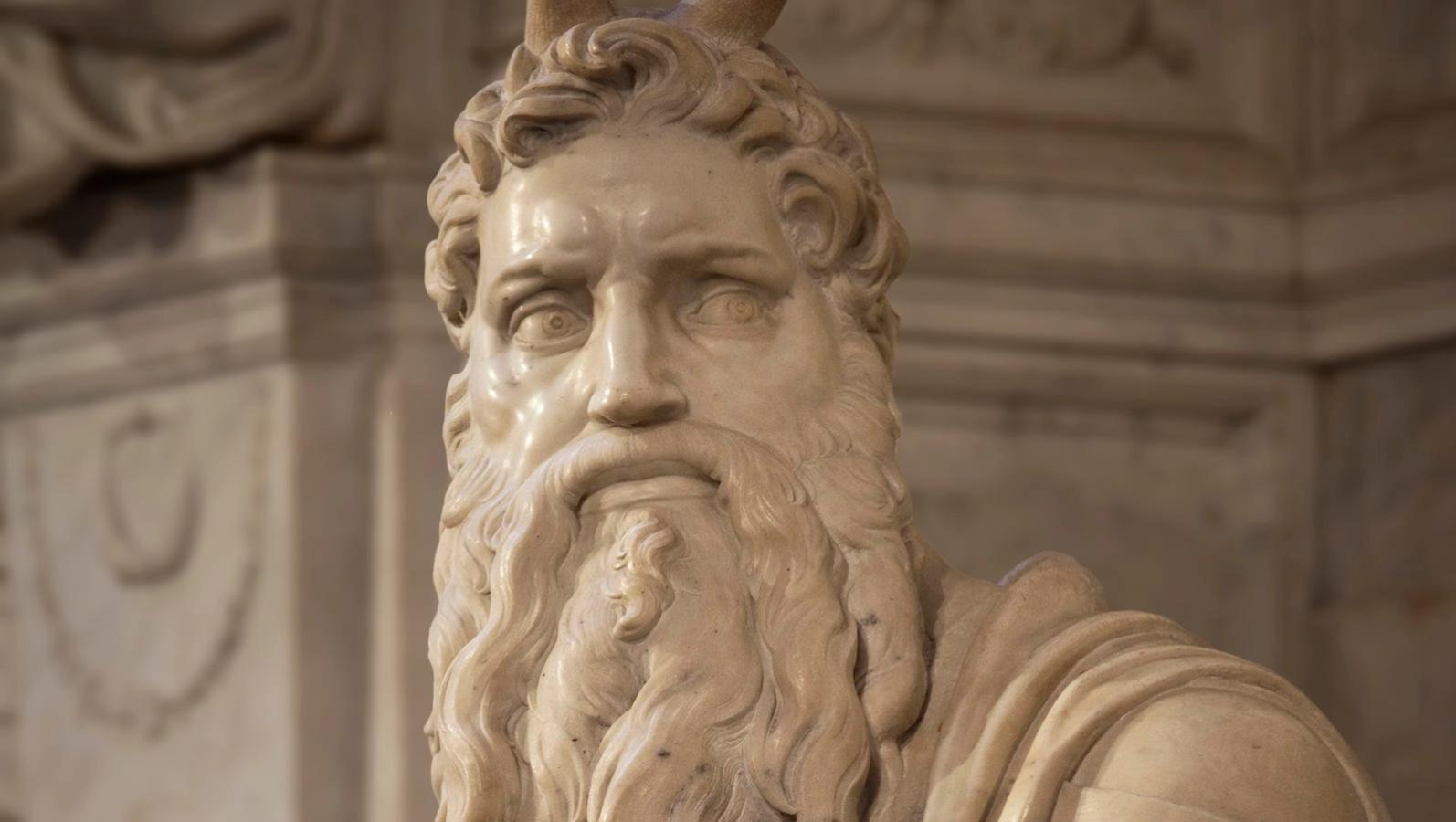As we look to the Catechism of the Catholic Church for guidance in prayer, we are presented with various examples and masters of prayer.
Part Four of the Catechism is a summation of the spiritual life. The first chapter of the first section describes exemplars of prayer throughout salvation history. After a passing reference to the early portion of Genesis, we’re given the figure of Abraham.
After Abraham, the Catechism directs our attention to Moses.
After the Passover, the Exodus, the gift of the Law, and the ratification of the covenant, Moses shows himself to be a man of deep prayer. He intercedes on behalf of his people and shows a true and deep concern for their well-being before God. The Catechism calls the prayer of Moses “the most striking example of intercessory prayer.” Such a prayerful ministry is ultimately fulfilled in Jesus Christ later in salvation history. In his own day, however, Moses, was the greatest example of suplication. Moses prayed from his heart for the good of others.
From the beginning of Moses’ life, we see an essential spiritual truth played out, namely, God is the one who initiates. The Catechism says boldly: “Here again the initiative is God’s.”
As Moses was an exile in Midian, having fled Egypt due to his own capital crimes, he marries and learns the shepherding trade of his new extended family. While he is tending the sheep, he sees burning bush that is not being consumed by the flames. From the flames, the Lord God calls out to him: “Moses! Moses!” In response, the prince-turned-shepherd, cries out: “Here I am!”
The Catechism explains: “From the midst of the burning bush he calls to Moses. This event will remain one of the primordial images of prayer in the spiritual tradition of Jews and Christians alike.”
The encounter between God and Moses take place over four hundred years after the death of Jacob, and yet God identifies himself as “the God of Abraham, of Isaac, and of Jacob.” As the Lord Jesus will later reference this event, he will elaborate: “He is God not of the dead, but of the living.”
The Catechism further explains this event by explaining that when God “calls Moses to be his servant, it is because he is the living God who wants men to live… he reveals himself in order to save them.”
The prayer of Moses is being nurtured within his soul by the words and deeds of God. Moses will pray so openly and transparently to God because God has been open and transparent with him. Moses is taught to pray by God himself.
The Catechism explains this divine mentoring in this way: “God calls Moses to be his messenger, an associate in his compassion, his work of salvation. There is something of a divine plea in this mission, and only after long debate does Moses attune his own will to that of the Savior God.”
Moses tried every excuse possible to avoid the mission God was asking him to do. When the voice of God called him to go back to Egypt, Moses recoiled. Egypt was a dangerous place for him. Egypt was his past. Egypt was a place of fear and uncertainty. And yet, God called him to go back to Egypt.
Moses and God engaged in conversation. This would be one of many tutorials in prayer that God would give to Moses. On this occasion, the conversation began to conclude when God revealed his holy name.
Earlier in salvation history, Jacob asked for God’s name and he was disabled for making such a petition. But here Moses is being entrusted with the divine name. The name is given within the context of Moses’ call to go to Egypt and announce the liberation of God’s people.
The Catechism describes the conversation between God and Moses in this way: “But in the dialogue in which God confides in him, Moses also learns how to pray: he balks, makes excuses, above all questions: and it is in response to his questions that the Lord confides his ineffable name, which will be revealed through his mighty deeds.”
The servant of God is being trained in prayer as his heart is being transformed and his will is being shaped to be in harmony with the will of God. As with Abraham, so with Moses: the heart of the servant must be in tune with the will of God if a life of prayer is to be born and flourish.















